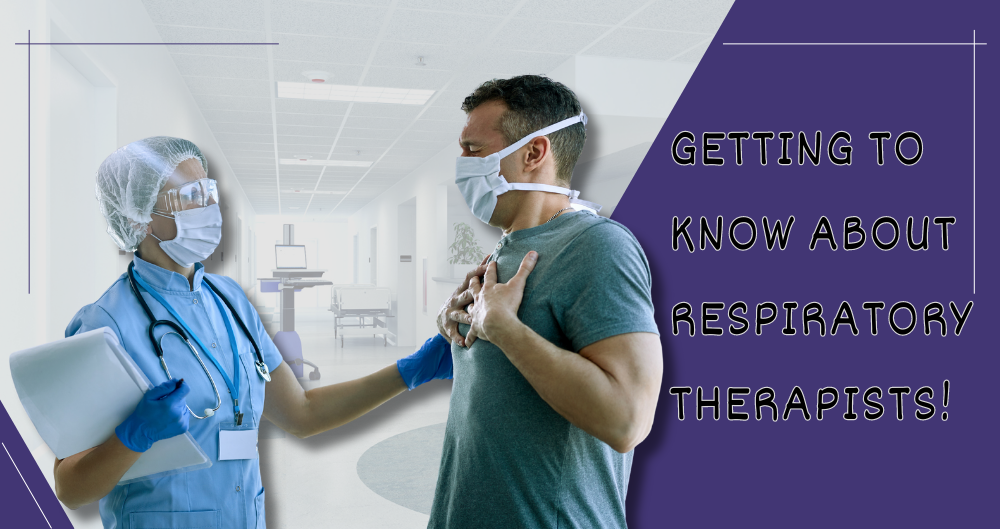What Is a Respiratory Therapist?

We're exploring the world of breathing experts — Respiratory Therapists. They are crucial in helping people regain their respiratory health. So, if you're curious about a career that combines compassion, critical skills, and making a positive impact, read on!
What are the two levels of certification for RTs?
The National Board for Respiratory Care (NBRC) certifies respiratory therapists, and they offer two levels of certification: the Certified Respiratory Therapist (CRT) and the Registered Respiratory Therapist (RRT). Let’s learn more about these certifications.
-
CRT - This certification is a requirement to practice as a licensed respiratory therapist. After completing your Associate’s degree in Respiratory Care, you can sit for the Therapist Multiple-Choice Exam (TMC). This national credentialing exam assesses your ability, knowledge, and competencies in respiratory therapy.
-
RRT - Passing the CRT with a high score will make you eligible for the Clinical Sims Exam (CSE). This separate board exam will award you the RRT credential. Some employers require that you earn RRT certification before working or within a specified period on the job.
Where can I work as a CRT? What are the perks?
As an RT, your journey doesn't stop at hospitals. You have options to choose from because you can work in:
-
Hospitals and clinics;
-
Home healthcare;
-
Nursing homes;
-
Pulmonary rehab centers, and
-
Emergency rooms.
And the rewards? They're as amazing as the job itself. You’ll enjoy the following:
-
Competitive salaries. As of May 2021, RTs earned a median annual wage of $61,830, showcasing the rewarding financial aspect of this fulfilling profession.
-
Job stability and growth. The demand for RTs will surge by 14 percent, surpassing the average growth rate for most professions. This remarkable projection highlights the thriving opportunities awaiting those considering a career in this field.
-
Making a significant impact on lives. With your ability to work harmoniously within a healthcare team, you'll be breathing life into your career every step of the way.
Is becoming a respiratory therapist a good career choice?
Becoming a respiratory therapist is an excellent career choice. With a growing demand for respiratory care due to an aging population and increased awareness of respiratory health, this profession offers a promising future.
As an RT, you will enjoy job stability, competitive salaries, and opportunities to work in diverse healthcare settings. If you're seeking a rewarding career that combines compassion, critical skills, and a chance to contribute to public health, becoming a respiratory therapist could be your path. Start your journey today and let your breathtaking career begin!

Fel is a student support representative who guides enrollees to the right program and answers their queries. She's committed to helping students and takes pride in her work. In her free time, she enjoys sightseeing and hanging out with loved ones.




